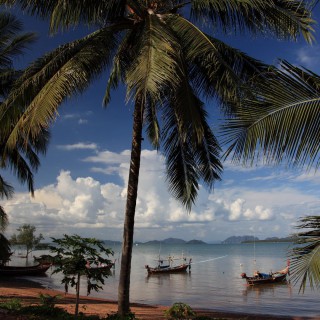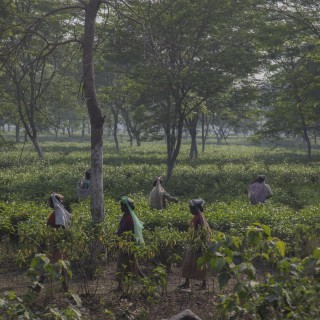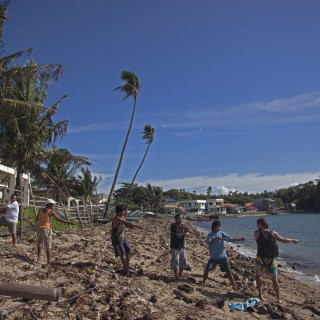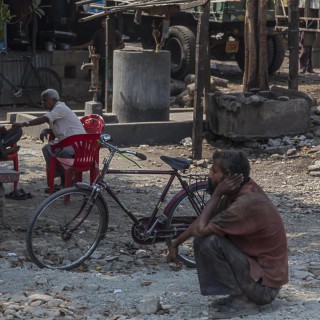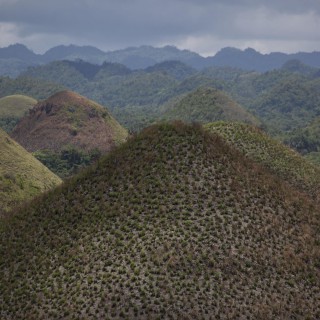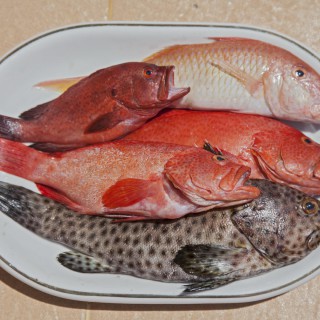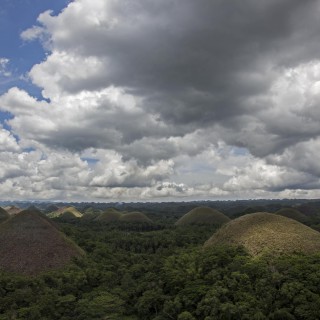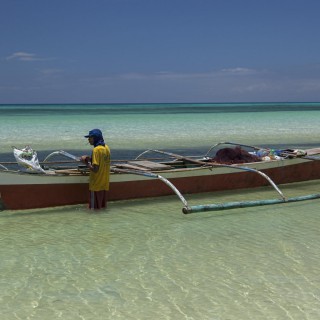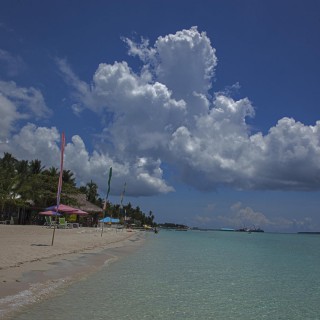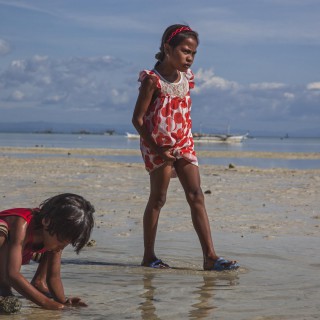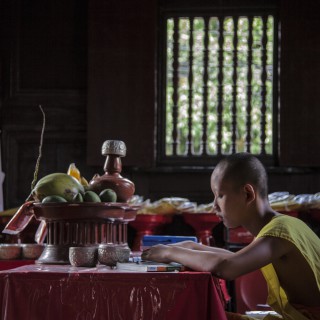MATAHARI / DAY’S EYE
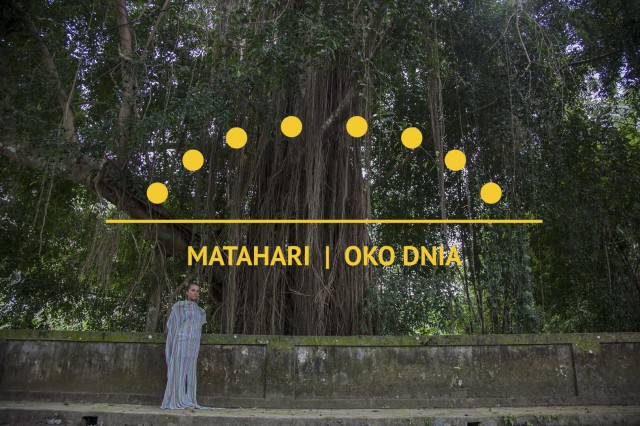
When in 2010 a special kind of reality fatigue pervaded Europe, and Poland in particular, we were preparing for our first trip to Asia.
The world behind the window, which not long ago was dying of longing for everything that was Western, now got locked into studied poses justified by an unshaken imperative of progress, modernization and growth.
Last local shops located in Praga District in Warsaw struggled to compete with big store chains such as Biedronka, Carrefour and Lidl, whereas the artistic community, smelling the scent of money, defined a new type of warrior. Dialog ended, meetings became shorter, groups started to split up, bonds got broken.
Something was dying and we all saw it. It was happening before our eyes and our evening discussions only confirmed that. We loved the same things, did the same things, fought the same enemy, watched the same movies, read the same books and made the same art.
Second-hand became obligatory and everything that it represented started to be our everyday prayer. When we were leaving, we hoped to find a place on earth unscathed by this ‘tsunami wave’ – the place where people live in accordance with tradition which we were deprived of because of the tragic history of our country and in which we saw the hope of finding meaning in life destroyed by the system ruled by corporate terror, dressed in colorful attire of consumerism, modernism, growth, loan and this goddamn TV propaganda on who pulled whose leg and how.
We are neither escapees nor enemies of progress or Western culture. We are just advocates of conscious and sustainable approach, on both individual and collective levels.
Witnessing rampant degradation of environment accompanied by human isolation from nature, we have noticed the aftermath of these processes and consciously chosen a different lifestyle, simultaneously broadening our knowledge on human existence on earth.
We spent several years among people living on remote islands. In Thailand we used our eyes to communicate with the Seafarers. In Cambodia we saw people collecting plastic garbage around their houses as a token of prosperity and wealth. In Malaysia we got lost in the jungle. The sky-blue sea and white sand were the setting for carefree, endless frolics in the Philippines. We visited Indonesia, whose seventeen thousand islands hide treasures still waiting to be discovered. And in India we learnt that it is a faux pas to you say ‘thank you’ or ‘I’m sorry’.
We would stay away from the cities to commune with nature as much as possible. With time it became our home. We longed for working outside with our hands – for manual labor based on experience. We realized that art, no matter what it becomes, expresses emotions associated with experiencing nature. All doubts disappear the moment nature starts speaking to you.
You breathe deeper in Asia, which resembles Europe of 1990s. It has got its dark side, but the sense of freedom and diversity can still be felt there. We closely observe this world and every day we look for answers to questions that arise when you live outside your culture. Language and customs often create a gap that makes communication difficult. Still, however, Asia provides us not only with inspiration but also with an intense experience that deepens our knowledge about ourselves.
In 2015, when we were in Indonesia, we bought a car that we converted into a mobile studio. We built a house on wheels that gave us a lot independence and allowed us to live away from civilization.
In August we went on our first trip that we called Matahari, which is a word for ‘sun’. This project resulted from our fascination with nature and our own private cult of the sun. We decided to research indigenous communities identifying themselves as animists, who have lived in a traditional way for thousands years. During our first trip we visited several islands east of Java, Bali, Lombok, Sumbawa, Flores and Sumba.
Unfortunately, that first trip did not finish as planned due to the failure of the only ferry from Sumba to Kupang on the island of Timor.
For this reason we decided to hit the road again in the hope of reaching all the intended destinations. Luckily, our house on wheels lived through the rainy season in Indonesia and recently even underwent some upgrading. We changed the wheels, raised suspension and installed solar power system.
Furthermore, we decided to keep a sort of journey diary to record everyday experiences. This diary is also to complement, in a way, the Matahari project as well as to show ‘behind the scenes’ of the exhibition that is going to be opened at the Biała Gallery in Lublin on December 9, 2016, to which we cordially invite you.



